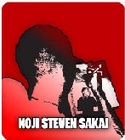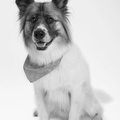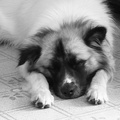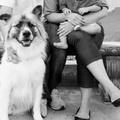I did Kendo (Japanese sword fighting) for almost 15 years. I ate rice almost every meal growing up. I understand Japanese. I root for Japanese baseball players. I work at a Japanese American institution. Should I then be considered Japanese? What does that really mean?
To the Japanese, I’m American. I’m different. I’m not like them. I’m their stupid inbred cousin they don’t like to talk about. I remember when I was in Japan as a kid, they outed me right away as an American. They could tell before I said anything. I think it was the way I wore my swim pants and played on the beach. They asked my cousins about it in a way that let me know that I wasn’t like them. I was different. Not different in that cool way. Different in that bad way.
In Japan, I was okay with being American. I think it’s because for some inexplicable reason when I leave the US a sense of jingoist pride wells up inside of me for the country where I was born and raised. Or maybe it’s that rejection from those Japanese people that I think should accept me that kills me. It’s that rejection that forces me to embrace America.
But in America, I’m seen as Japanese. People seem to always want to talk to me about their Buddhist discovery or about their martial arts teacher. Or how much they love sushi and chicken teriyaki! If I were smarter I would talk using only wise eastern clichés.
The thing is: I am Japanese. The second son of a shin-issei mom and sansei dad. My lineage is pure. Even my fiancé is Japanese. But I’m also as American as they come. My dad’s family has been in the US since the 1880s. I speak English better than I speak Japanese. I did Little League, Boy Scouts, and I can recite every state in the union in alphabetical order.
So if in Japan I’m American and in America I’m Japanese, what does that make me? Confused.
For a while I thought I could be white. Born and raised around them, I can speak like them and I can act like them. Fading into the pale skinned world, I would become undistinguishable and unnoticeable, except for those uncomfortable moments when Pearl Harbor is mentioned. But all is rectified when I laugh at those dirty Japs. Unlike other people of color, I could be accepted into this exclusive fraternity and given the opportunity to attend elite schools and compete for prestigious jobs. I felt whole because I could define myself: a banana. You know, yellow on the outside and white on the inside.
Then I wanted to be African American. I saw “Menace II Society” and “Boyz N’ the Hood” and thought that being black was cool and exciting. I started listening to rap music thinking that if I listened enough I could pass. I didn’t realize at the time that I was being stupid and stereotypical (not to mention racist), but again for a while I felt whole because I could re-define myself: a chocolate covered banana.
But I wasn’t white or black and that was clear every time I looked at myself in the mirror. No one else was fooled either and I guess that was part of the problem. I was left where I started, but even more confused than I was before.
Now I tend to call myself Japanese American, which implies I’m Japanese and American. The name feels like a dress shirt two sizes too small around the neck. Because in the end I don’t feel Japanese and I don’t feel American no matter where I am.
I could be Asian American since my family once lived in the part of the world known as Asia and I do currently reside in America. But saying Asian American feels like a dress shirt two sizes too large. It encompasses a lot of people who don’t share a common heritage, history, or culture in this country or over there.
Maybe I should move to Antarctica where I can self define and all the other people who want to could do the same. It would be freeing and this heavy question of who I am wouldn’t be an issue. But sooner or later it will come up again – the way these kinds of questions always do.
Some of my friends think that being human is good enough. Not true. If it were, we would never have invented race or gender or any other quantifying characteristic to distinguish ourselves from each other. But we are the little boxes that we check and it’s only confusing when you don’t know which box to check. Hapas (people of mixed Asian ancestry) aren’t the only ones who have this problem. Theirs is just more obvious.
I wish there was an easy answer. Something I can tell myself that wouldn’t come off as trite. Unfortunately, I don’t know that answer. Instead, I am left with this uniquely American existential crisis that I hope will only get easier the older I get. Maybe then I can just be “old”.
© 2007 Koji Steven Sakai






